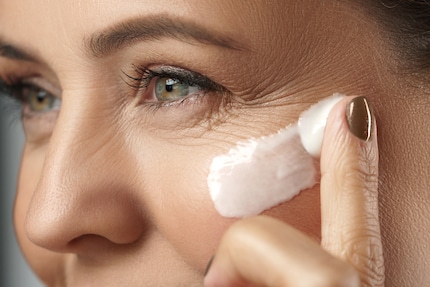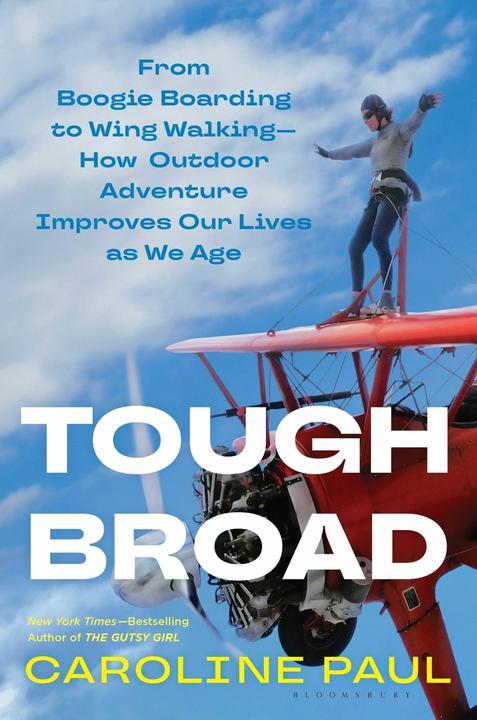

Please, just let me look my age!
It may be the largest fitness trade show in the world, but Fibo stopped being purely about athletic performance a long time ago. The main focus of the event is body optimisation in all its facets – from biohacking to longevity. The tenor: getting old is fine. Looking old? Not so much.
I’m sure there were no ill intentions behind this, but... I recently attended the world’s largest fitness trade show, Fibo, in Cologne. And I’d barely got 200 metres past the entrance when a young woman approached me. «Oh, all I’ve got here is a little hand cream sample. But hang on a moment, I’ll get something for your wrinkles,» she said. «That won’t be necessary,» I replied, «They’re okay as they are.» Even so, she pressed on: «What about around your eyes…?» I raised an eyebrow in response, fully aware that my expression was making me look all the more wrinkled.
See, here’s the thing. There are reasons behind each line on my face. They bear witness to all the laughs, exertions, frustrations and annoyances I’ve experienced over the past few decades. They’re like souvenirs – and I want to keep them.
Over the course of my visit to the trade show, I was roped into two other similar conversations. What’s more, anti-ageing seemed to be at the very top of the trade show’s self-optimisation agenda.
Wherever strength training came up, there were protein shakes, collagen coffee and electrostimulation. Supplements and intermittent fasting, they said, would get your metabolism running like a high-performance machine. Ice baths, oxygen masks, powders and pills were touted in a bid to boost longevity. Evidently, growing older is a desirable goal. Looking older, however, is not.
Playing on fear and shame
That’s why there’s such a thing as firming cream. And LED face masks to stimulate collagen production. There’s even a genetic test to determine your biological age (I’ve done one and will write about it soon).
My chronological age is neither a success nor a sin. It’s simply the logical consequence of being born at a certain point in time. I’m fairly happy with how I look. After all, I don’t see myself that often – just when I stand in front of the mirror. And I certainly think the people around me can put up with what I do see. Let’s face it, it’s not going to get better than this. So why is my appearance being addressed in such a blunt way? And not simply at an exhibition stand, but in the corridor as I’m on my way to a meeting.
Laura Hurd, a sociologist and professor at the University of British Columbia in Vancouver, commented on this phenomenon in National Geographic magazine: «We’re selling the idea that we’re all against ageing, because we should be afraid of it – and better yet, battle it.»
According to Hurd, this fear has real consequences for older people – from casual ageism to institutional and social practices that marginalise and endanger women in particular. Young people are impacted too. Need I say more than «Sephora Kids»?
Does invisible mean unwanted?
German Vogue has also tackled the subject in its May issue. «What will it feel like if we’re talking to new people whose appearance gives zero indication of their life experience? People who might be 30, but might even be 50 years old? What will that mean for interpersonal relationships?» the writer asks, pointedly.
Don’t get me wrong. If someone wants to use creams or other products to make themselves look younger, older, more beautiful, more interesting or however else, more power to them. What they do is none of my business. In fact, I also use creams that make my skin look softer and healthier. There’s nothing wrong with that.

Source: Shutterstock
What does irk me is being cornered out of the blue at a trade show, essentially on the basis that there’s something wrong with my skin and therefore with me.
Apparently, looking young is no longer the ideal, but the norm. And if you don’t live up to that norm, then you’d better do something about it pronto. It’s all gone so far that Vogue has speculated on an impending «beauty burnout». The writer later argues that despite the overwhelm, the burnout won’t truly materialise. In the end, she says, the pressure to look flawlessly youthful is greater than the financial and emotional cost of the cult of youth.
Age stereotypes harm everyone
Why does this bother me? Well, fitness trade shows are all about fitness, strength training and exercise. These things are important at every stage of life, but they’re especially vital in old age. That means everybody, whether they’re 20, 60 or 95, should feel welcome at a fitness expo. If people have to hide their age or if only the most youthful-looking folks – the 65-year-olds who look 35 – are celebrated, then something’s gone wrong.
By the way, I’m not the only one who thinks so. Research by Dr Becca Levy, a professor at the Yale School of Public Health, has demonstrated that people over 50 who hold positive beliefs about their age live seven and a half years longer than people who’ve internalised negative stereotypes.
In addition, over-50s in the study who were given positive feedback had better memory and balance. Participants who heard negative age stereotypes, on the other hand, had more anxiety, depression, higher blood pressure and lower scores in cognitive tests. If you fancy delving deeper into the subject, you might be interested in her book:

So, what do we do about all this? Well, that’s a decision everyone has to make for themselves. In my case, it means staying active, curious and open-minded, and showing that many clichés about ageing and looking older aren’t the pearls of wisdom they’re cracked up to be.
I’m going to keep showing up at fitness trade shows and sporting events with joy, confidence and my ageing face and body. I love trying out new sports such as pump foiling or running up hill and down dale without giving my appearance much thought.
For you, it might be something else. Reading, painting, movies – whatever you want. Personally, sport and exercise is what makes me feel vibrant, empowered and comfortable in myself. Do you feel the same way? Seeing as women are traditionally less represented in adventure sports, here’s an inspirational book recommendation for you:
Research diver, outdoor guide and SUP instructor – I love being in, on and around water. Lakes, rivers and the ocean are my playgrounds. For a change of perspective, I look at the world from above while trail running or flying drones.
This is a subjective opinion of the editorial team. It doesn't necessarily reflect the position of the company.
Show all


